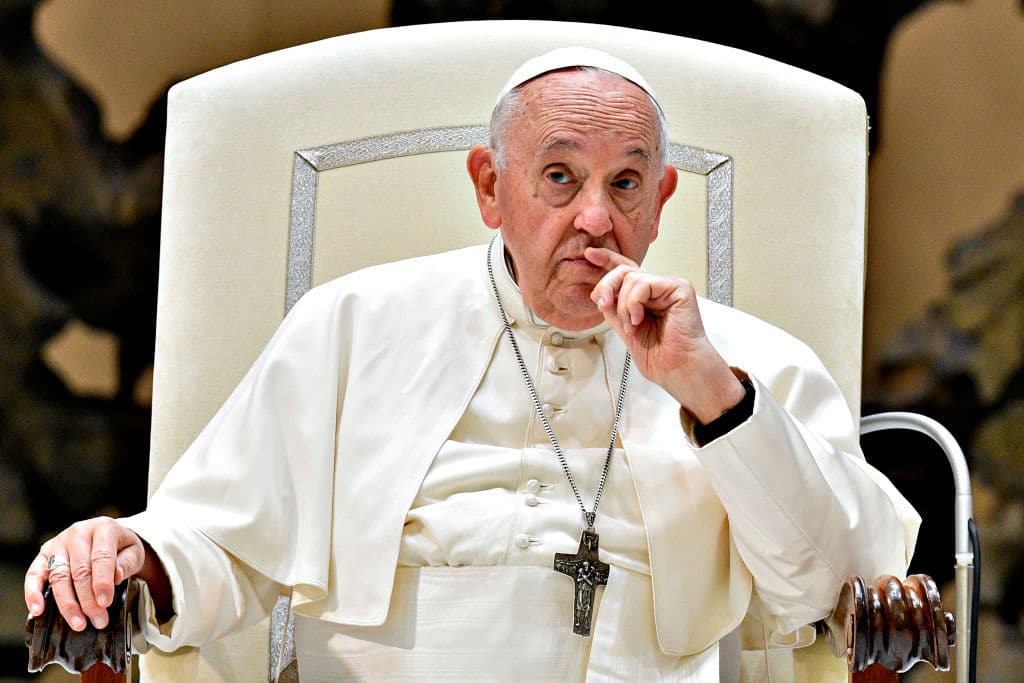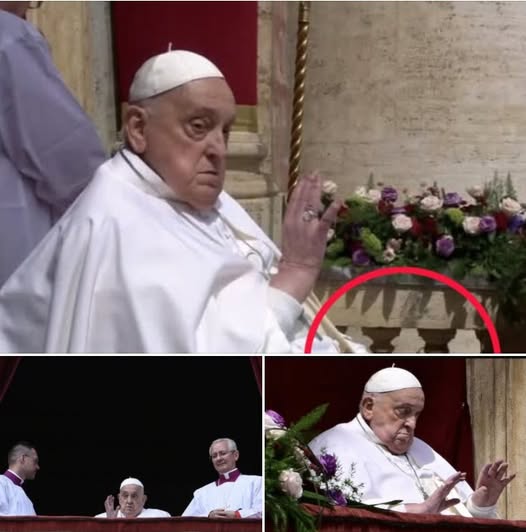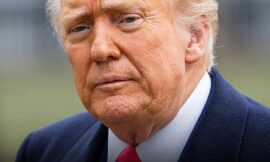
This morning brought heartbreaking news to millions across the globe: Pope Francis has passed away. The announcement came from the Vatican on Easter Monday, April 21, 2025, a day typically filled with celebration, which instead became one of mourning. The world paused to remember a man whose papacy was marked by humility, compassion, and an unwavering commitment to social justice.
In the days leading up to his passing, Pope Francis had made what would be his final public appearance. On Easter Sunday, despite his ongoing health struggles, he greeted the faithful from the balcony of St. Peter’s Basilica. Though visibly frail and seated in a wheelchair, he mustered the strength to wish the gathered crowd a heartfelt “Happy Easter” and extended his blessing to the tens of thousands who had traveled to Rome for the holiday.
Because of his declining health, the Easter Mass was presided over by Cardinal Angelo Comastri, who stood in for the Pope during the service. It was a significant change from tradition, and a clear sign to many that the Holy Father’s condition had worsened. Still, Francis’s voice reached the world through a powerful and moving Easter message, which was delivered on his behalf by a Vatican archbishop. In it, he offered not only words of celebration, but a final plea for peace and compassion—one that now resonates with even deeper gravity.
His message touched on global suffering and conflict. “I think of the people of Gaza, and its Christian community in particular, where the terrible conflict continues to cause death and destruction and to create a dramatic and deplorable humanitarian situation,” the address read. He also voiced alarm over the growing tide of antisemitism around the world and called on the global community to recommit to fundamental freedoms.
“There can be no peace without freedom of religion, freedom of thought, freedom of expression and respect for the views of others,” the message continued—words that now stand as a testament to his enduring legacy of inclusivity and advocacy for human dignity.
After the address, the Pope was driven through the square in an open-top vehicle, offering one last visible connection to his followers. Those present likely did not know they were witnessing history—that this would be the final time Pope Francis would appear in public.
He was 88 years old at the time of his passing and had been battling a series of health challenges, including a severe case of double pneumonia. Just weeks earlier, he had been discharged from Rome’s Gemelli Hospital after a month-long stay. Though doctors allowed him to return to his residence in Casa Santa Marta, they made it clear that his recovery would be slow and fragile.

Despite his illness, Pope Francis remained active in spirit, though not in body. For the first time since his election in 2013, he was forced to miss most of the Holy Week events. He did not participate in the foot-washing ritual on Holy Thursday—a deeply symbolic tradition replicating Jesus’s act of humility with his disciples. He also missed the Stations of the Cross at the Colosseum on Good Friday and the Easter Vigil at Saint Peter’s Basilica on Saturday. Duties typically reserved for the Pope were assigned to senior cardinals.
Still, ever the shepherd, he made a brief appearance on Saturday to greet visitors—an act of courage that now seems deeply symbolic. It was a final gesture of connection to the people he served, right up until the very end.
Pope Francis will be remembered as one of the most consequential and beloved figures in the modern Church. Born Jorge Mario Bergoglio in Argentina, he became the first pope from the Americas, the first Jesuit pope, and the first to choose the name Francis—after St. Francis of Assisi, the patron saint of the poor and marginalized.
His papacy was marked by a clear focus on reform, outreach, and compassion. He made it his mission to serve those at the margins of society—refugees, the poor, the sick, and the forgotten. He challenged the Church to confront modern issues with humility, whether it be addressing the climate crisis, acknowledging historical injustices, or calling for a more inclusive approach to LGBTQ+ Catholics.
Though not without criticism or internal resistance, Pope Francis consistently emphasized mercy over judgment. He opened doors to interfaith dialogue, championed economic justice, and reminded the Church to be a “field hospital” for the wounded, not a fortress for the righteous.
His final days were a reflection of his life’s work: quiet resilience, faith in action, and a deep love for humanity. The legacy he leaves behind is one not only of religious leadership, but of moral clarity in an often fractured world.
As news of his death spreads, tributes are pouring in from world leaders, religious figures, and ordinary people whose lives were touched by his words and example. Candlelight vigils have begun forming outside the Vatican, and churches across the globe have opened their doors for prayer and remembrance.
The world has lost a spiritual giant. But the light Pope Francis ignited—in his calls for unity, dignity, and justice—continues to shine.May he rest in peace, and may his final message inspire those he leaves behind.




